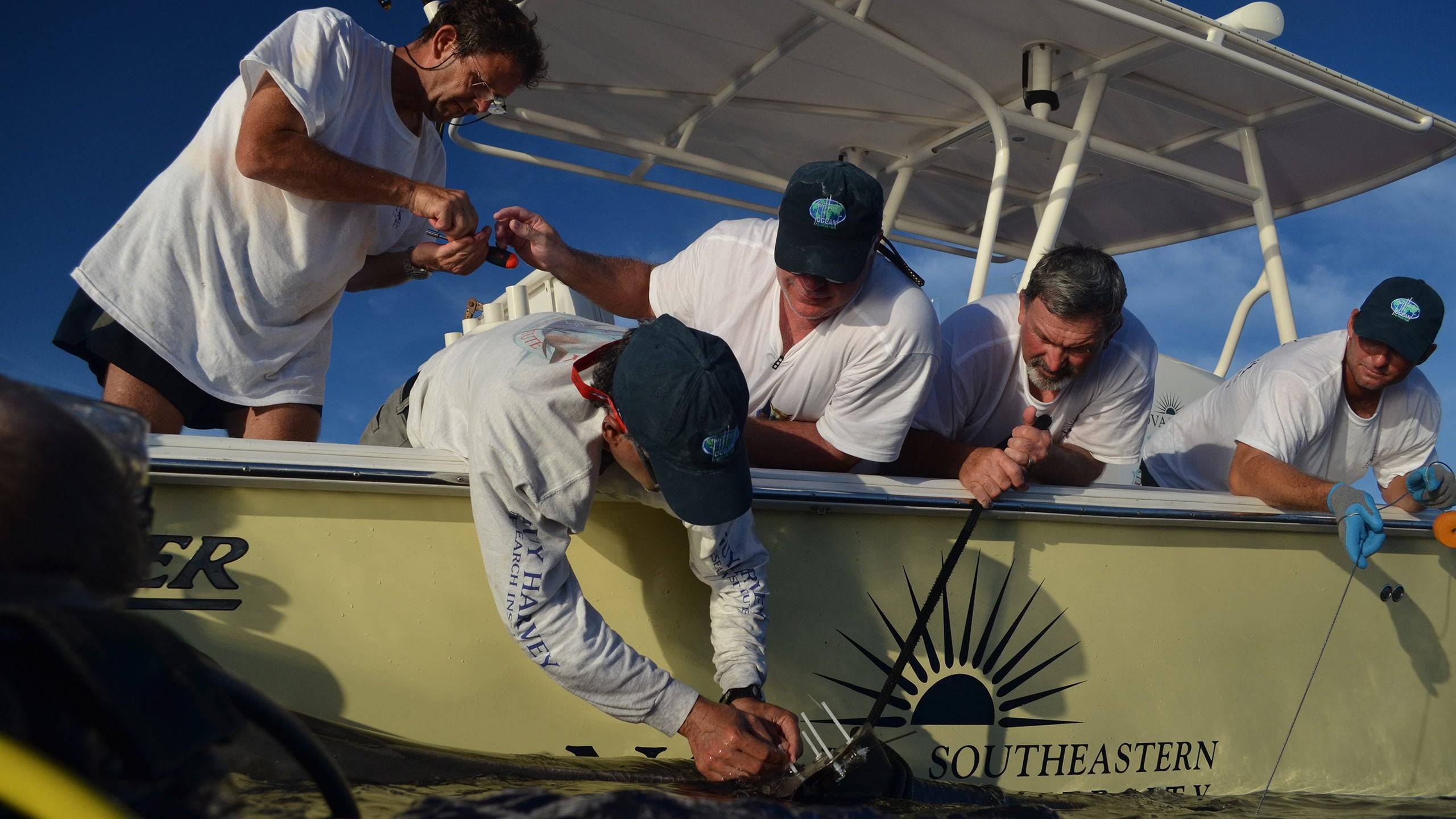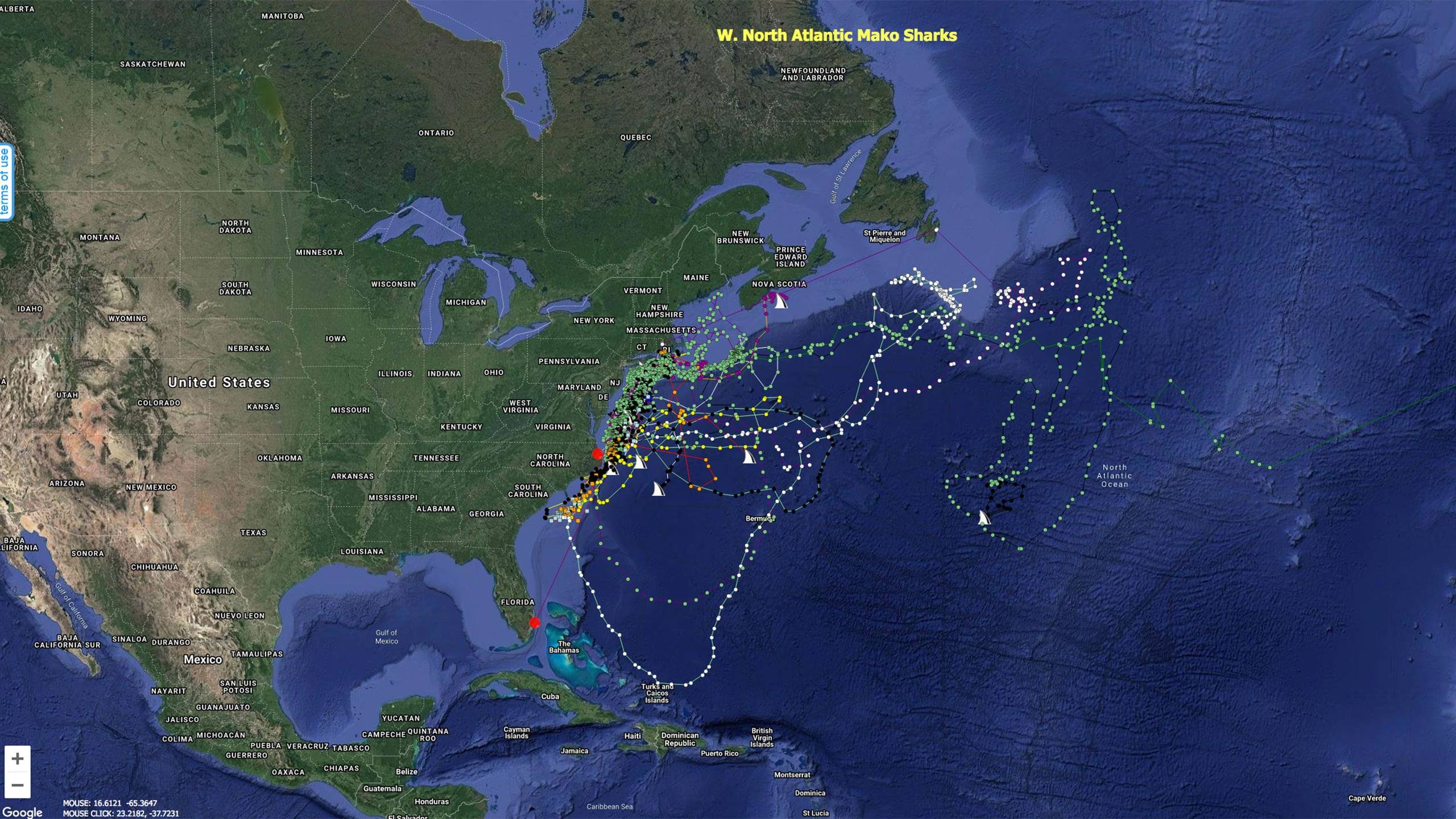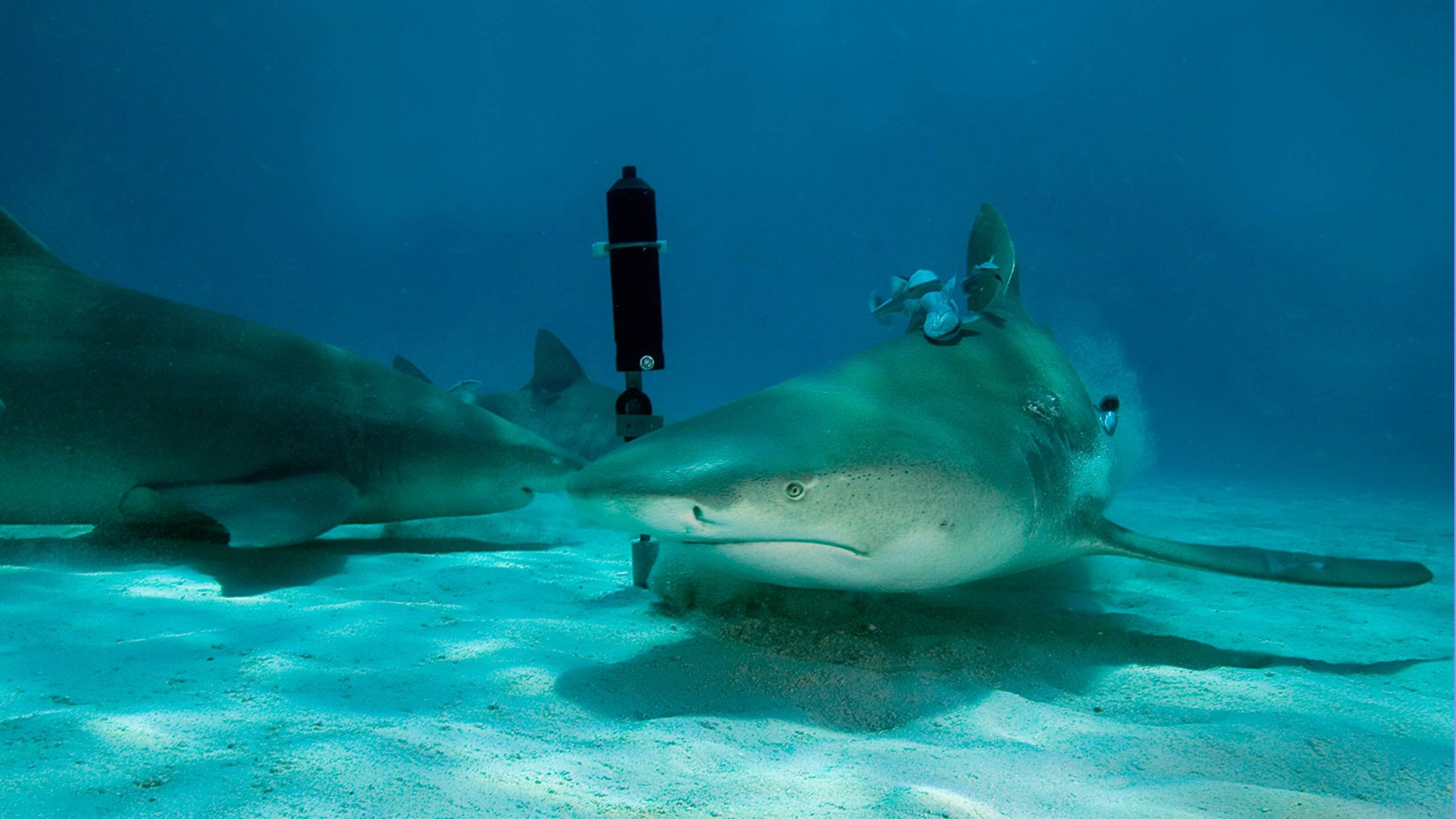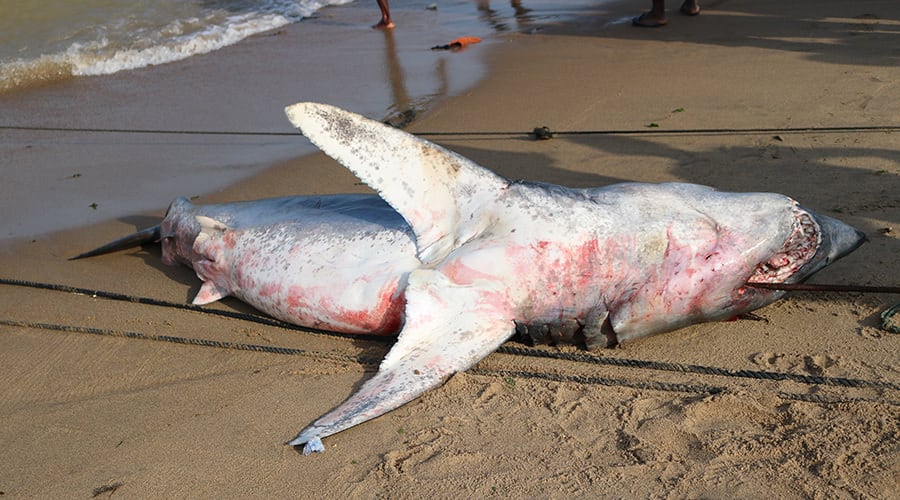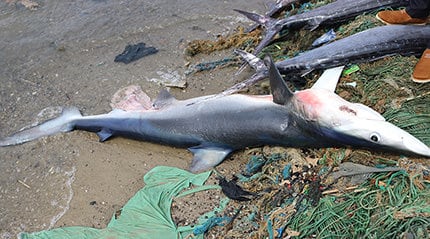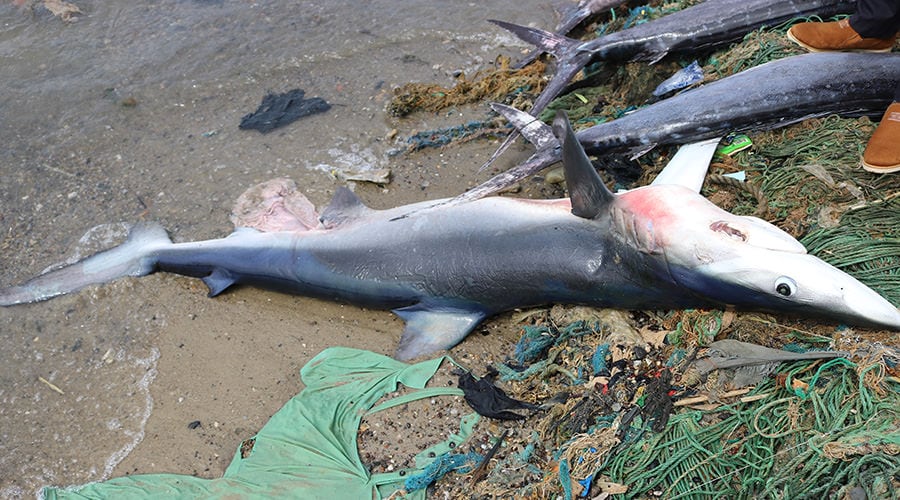Ghana is a major elasmobranch fishing nation in the West African subregion. Elasmobranch fishery represents a key source of employment, providing both sustenance and income for some of the poorest Ghanaian coastal communities. Shark meat serves as a cheap source of protein to most artisanal coastal fishing communities in Ghana.
Dead Mako shark Ghana
Photo © Seidu Issah
Background
Fishermen – especially those residing along the West Coast of Ghana – have recently resorted to targeting sharks in their quest to cope with the continuous decline of small pelagic fish (e.g. sardinellas, chub mackerels and sardines) as well as large pelagic species (e.g. tuna, skipjacks). Anecdotal evidence shows a higher income value attached to sharks compared to small and large pelagic species such as sardines and tuna, the reason being that sharks provide a double benefit in terms of both their fins and meat being sellable. The high monetary value derived from sharks is a source of motivation that makes fishermen overexploit shark species in the waters off the Western Coast of Ghana.
Goal
The project should provide critical baseline information on ecological, cultural and socioeconomic characteristics of artisanal shark fisheries in Western Ghana, including any local threats. Specific attention will be given to analyzing threats to sharks typical for a region. This will provide initial data that is urgently needed to develop a national conservation strategy in order to ensure sustainable usage of sharks.
Landed blue shark in Ghana
Photo © Seidu Issah
Methods
Data is collected using various methods. Firstly, the species caught and landed by the fishermen are analyzed. This should provide information about the species composition and their spatial and temporal distribution. Additional information will be obtained through interviews with fishermen and other key persons, discussions with focus groups, interviews and questionnaires. Historical data will also be collected in order to identify any trends that may emerge.
Standard methods will be used to collect information on historical distribution, cultural and socioeconomic characteristics of elasmobranchs in selected sites in the coastal districts of Western Ghana.
Project Status
Data collection started in April 2019.
Administrative
Project status: In progress since 2019
Photos: © Seidu Issah
Project Leader: Seidu Issah
Funding: Total of CHF 18.500 for 3 years. 2020 CHF 8,150.




